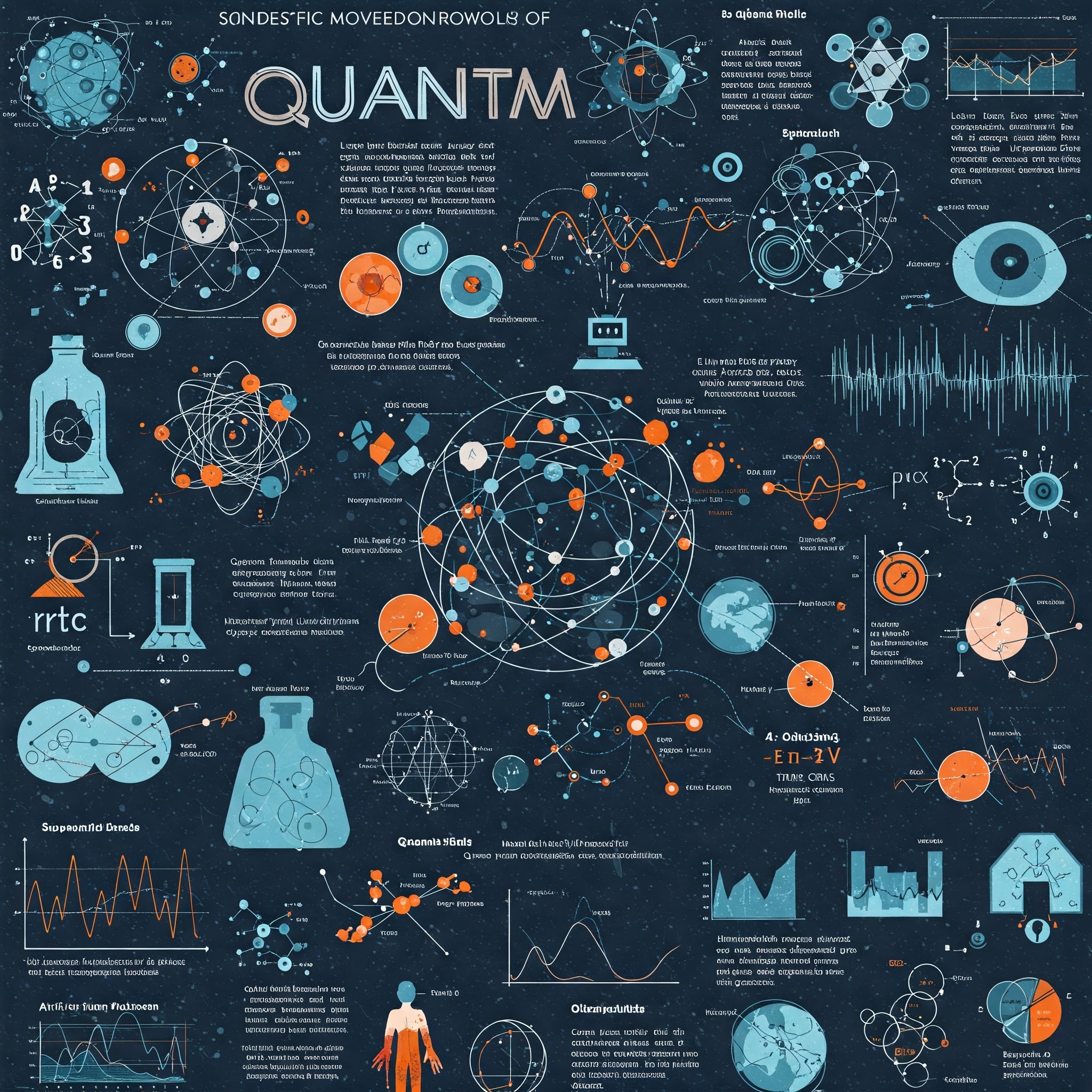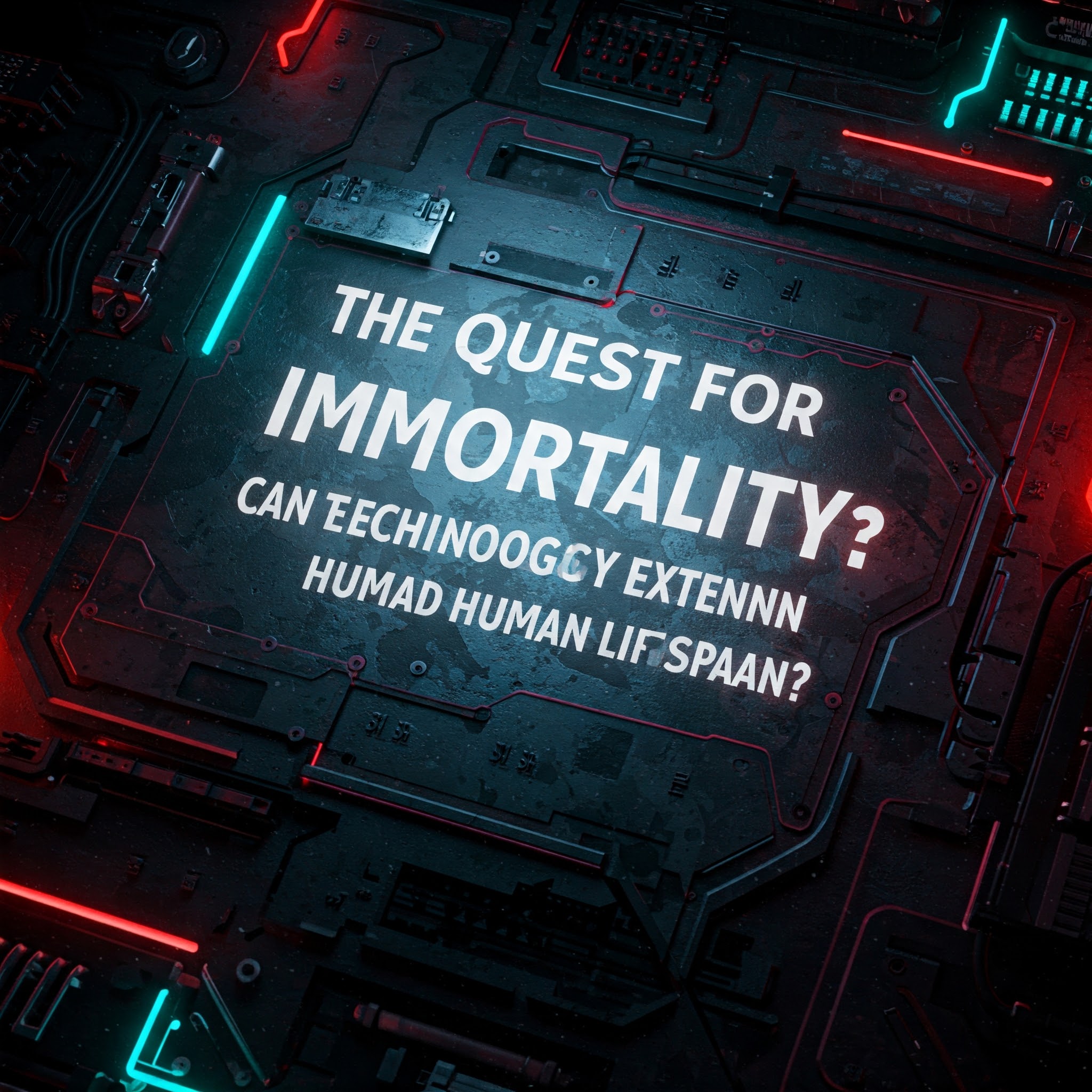The quest for immortality or significant lifespan extension has been a long-standing human aspiration. With advancements in technology, particularly in fields like biotechnology, genetics, and artificial intelligence, there is growing interest and research into whether technology can extend human lifespan. Here are some key areas where technology is making an impact:
- Genetic Engineering: Technologies like CRISPR-Cas9 allow scientists to edit genes with precision. This has potential applications in correcting genetic defects that cause diseases, potentially extending healthy lifespan.
- Regenerative Medicine: Stem cell research and tissue engineering are paving the way for regenerating damaged tissues and organs, which could lead to treatments for age-related diseases and possibly reverse some effects of aging.
- Biogerontology: This field studies the biological processes of aging. Researchers are exploring ways to slow down or reverse aging at the cellular level, such as by targeting senescent cells that contribute to aging and age-related diseases.
- Artificial Intelligence and Machine Learning: AI is being used to accelerate drug discovery, personalize medicine, and analyze complex biological data to uncover new insights into aging and longevity.
- Wearable Technology and Health Monitoring: Wearables and mobile health apps enable continuous monitoring of health metrics, allowing for early detection and intervention in potential health issues.
- Nanotechnology: Nanomedicine could lead to the development of nanobots that repair cellular damage or deliver drugs precisely where needed in the body, potentially treating diseases at their source.
- Caloric Restriction Mimetics: Research into drugs that mimic the effects of caloric restriction, which has been shown to extend lifespan in various organisms, is ongoing.
- Senolytics: This is a class of drugs that selectively clear senescent cells, which are cells that have stopped dividing and contribute to aging and age-related diseases.
While these technologies hold promise, it’s important to note that extending human lifespan significantly is still a theoretical possibility rather than a proven reality. Ethical considerations, potential unintended consequences, and the complexity of human biology are significant challenges that need to be addressed. Moreover, the goal is not just to extend lifespan but to ensure that the additional years are healthy and productive, a concept known as “healthspan.”
While technology has the potential to extend human lifespan, it is a multifaceted challenge that requires careful consideration of scientific, ethical, and societal implications. The pursuit of longevity is as much about improving the quality of life as it is about adding years to it.
The quest to extend human lifespan and potentially achieve immortality is a multidisciplinary endeavor that intersects with various fields of science, technology, and ethics. Below is a deeper exploration of the key areas, challenges, and future directions in this fascinating pursuit:
1. Understanding Aging: The Biological Basis
Aging is a complex biological process influenced by genetic, environmental, and lifestyle factors. Key hallmarks of aging include:
- Genomic Instability: Accumulation of DNA damage over time.
- Telomere Shortening: Protective caps on chromosomes that erode with each cell division.
- Epigenetic Alterations: Changes in gene expression without altering the DNA sequence.
- Cellular Senescence: Cells that stop dividing and contribute to tissue dysfunction.
- Mitochondrial Dysfunction : Decline in energy production within cells.
- Stem Cell Exhaustion: Reduced ability of stem cells to regenerate tissue
Understanding these mechanisms is critical to developing interventions that can slow, halt, or reverse aging.
2. Breakthrough Technologies in Longevity
A. Genetic Engineering
- CRISPR-Cas9: This gene-editing tool allows scientists to modify DNA with precision. Researchers are exploring its potential to repair age-related genetic damage or enhance longevity genes.
- Gene Therapy: Delivering healthy genes to replace or supplement defective ones, potentially treating age-related diseases like Alzheimer’s or cardiovascular conditions.
B. Regenerative Medicine
- Stem Cell Therapy: Stem cells can differentiate into various cell types, offering the potential to regenerate damaged tissues and organs. For example, stem cells are being used to repair heart tissue after a heart attack.
- Organ Printing: 3D bioprinting technology aims to create replacement organs using a patient’s own cells, reducing the risk of rejection and addressing organ shortages.
C. Senolytics
- Senolytic drugs target and eliminate senescent cells, which accumulate with age and contribute to inflammation and tissue dysfunction. Early studies in mice have shown promising results in extending lifespan and improving healthspan.
D. Nanotechnology
- Nanobots: Microscopic robots could one day repair cellular damage, clear arterial plaques, or deliver drugs directly to diseased cells.
- Nanomedicine: Nanoparticles are being developed to target cancer cells or remove toxins from the body.
E. Artificial Intelligence (AI)
- Drug Discovery: AI can analyze vast datasets to identify potential anti-aging compounds or repurpose existing drugs for longevity.
- Personalized Medicine: AI can tailor treatments based on an individual’s genetic makeup, lifestyle, and health history, optimizing interventions for longevity.
F. Caloric Restriction Mimetics
- Caloric restriction has been shown to extend lifespan in various organisms. Researchers are developing drugs that mimic the effects of caloric restriction without requiring drastic dietary changes.
3. Lifestyle and Environmental Factors
While technology plays a significant role, lifestyle choices also impact longevity:
- Diet: Nutrient-rich, low-calorie diets are associated with longer lifespans.
- Exercise: Regular physical activity improves cardiovascular health, reduces inflammation, and enhances cellular repair mechanisms.
- Sleep: Quality sleep is essential for cellular repair and cognitive function.
- Stress Management: Chronic stress accelerates aging, so mindfulness and stress-reduction techniques are important.
4. Ethical and Societal Implications
Extending human lifespan raises profound ethical and societal questions:
- Equity and Access: Will life-extending technologies be available only to the wealthy, exacerbating inequality
- Overpopulation: Longer lifespans could strain global resources and infrastructure.
- Identity and Purpose: How would significantly extended lifespans affect human identity, relationships, and societal structures?
- Defining Death: If aging is “cured,” how would society redefine death and the natural life cycle?
5. The Role of Immortality in Human Culture
The desire for immortality is deeply rooted in human history, from ancient myths (e.g., the Fountain of Youth) to modern science fiction. It reflects humanity’s fear of death and the desire to transcend biological limits. However, some argue that mortality gives life meaning and drives creativity and progress.
6. Current Research and Future Directions
- Aubrey de Grey and SENS: The Strategies for Engineered Negligible Senescence (SENS) initiative focuses on repairing age-related damage at the molecular and cellular level.
- Altos Labs: A biotech company backed by billionaires, Altos Labs is researching cellular reprogramming to reverse aging.
- Human Longevity Inc. : Founded by Craig Venter, this company uses genomics and AI to extend healthy human lifespan.
- Clinical Trials: Numerous trials are underway to test anti-aging interventions, such as senolytics, NAD+ boosters, and metformin.
7. Challenges and Limitations
- Biological Complexity: Aging is a multifaceted process, and targeting one aspect may not address others.
- Unintended Consequences: Interventions like genetic editing or senolytics could have unforeseen side effects.
- Regulatory Hurdles: Anti-aging therapies must undergo rigorous testing to ensure safety and efficacy.
- Cost and Accessibility: Cutting-edge technologies are often expensive, raising concerns about equitable access.
8. The Future of Longevity
While achieving immortality remains speculative, significant lifespan extension is increasingly plausible. The focus is shifting from merely extending lifespan to enhancing healthspan—the period of life spent in good health. This holistic approach emphasizes not just living longer but living better.
In the coming decades, breakthroughs in biotechnology, AI, and regenerative medicine could transform our understanding of aging and redefine what it means to be human. However, the journey must be guided by ethical considerations and a commitment to improving the quality of life for all.
The quest for immortality or extended lifespan is one of humanity’s most ambitious goals. While technology offers promising tools, the path forward requires a balance of scientific innovation, ethical reflection, and societal preparedness. Whether or not we achieve immortality, the pursuit itself is driving advancements that could revolutionize healthcare and improve the human condition.





















Comments 1